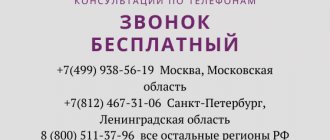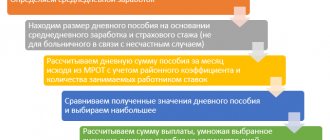The legislation of the Russian Federation provides for various forms for placing orphans in families. Children can be adopted, given guardianship, taken into foster care, or placed in a foster family. Russian citizens who choose one of these forms have the right to count on budget breaks. The amount of the benefit depends on the category. Thus, the foster family is entitled to payments, which in 2021 are calculated based on different data.
What benefits are available to foster families?
First of all, you need to understand that placing a child in a foster family is different from adoption. In the latter case, the orphan will receive the status of a full family member. The procedure is more complicated to complete; moreover, there are no subsidies or tax breaks for adoption.
But residents of Russia who decide to take an adopted child into their family can count on several types of benefits:
- one-time;
- monthly;
- tax relief.
The budget provides for such a measure of state support as a one-time monetary reward. It is paid both at the birth of a natural child and at the placement of an orphan. In 2021 it is 16,350 rubles. If a foster family takes in a disabled child, children over seven years old, or several children from an orphanage at once, the amount will be 124,929 rubles.
As for the amount of monthly payments to foster families, they depend on a number of factors. Firstly, the amount of the benefit is directly related to how many children will be placed. Secondly, a significant premium is provided for a disabled child. Also, the allowance is 1.5 - 2 times higher for those children who have category 3 or 4 health status. In addition, regional authorities in some cases allocate additional funds, which also affects the size of the benefit.
If a child under 3 years of age is placed in a foster family, one of the parents can apply for parental leave at the workplace. In this case, a monthly payment of 40% of wages will be added to the state benefit. The fees for raising an orphan are on average 15 thousand rubles. per month. In some regions, the amount increases several times if the family has the status of large families.
By the way, even pensioners can take in a child. In this case, they will be treated as officially employed citizens.
Payments for children under guardianship in the Moscow region
.
You may be interested in:: Purchase and sale agreement with installment payment between individuals
The Department of Guardianship and Trusteeship of the Ministry of Education of the Moscow Region for the urban districts of Serpukhov, Protvino and Pushchino informs that from January 1, 2021, payments to families of guardians / trustees /, foster families for the maintenance of wards and adopted children, provided for by the Decree of the Government of the Moscow Region dated 04.10. 2007 No. 751/32 “On approval of standards of material and monetary support for orphans and children left without parental care.”
- When registering guardianship or adoption of a child, citizens are entitled to a one-time payment from the federal budget.
At the regional level, additional benefits are provided for children taken into the family by adoptive parents.
The amount of the monthly benefit is established by the constituent entities of the Russian Federation. It is influenced by the regional cost of living and the age of the minor. The payment is established from the day the order is issued to transfer the child to the family. The guardian is compensated for the expenses for the minor that were incurred by him from the day when he was actually left without parental care.
What payments are due to guardians and trustees?
- child care leave up to 1.5 years;
- the opportunity to work part-time or part-time when raising a minor under 14 years of age (Article 93 of the Labor Code of the Russian Federation);
- refusal to work at night or travel on business if the child is under 5 years old.
Important! The period for requesting benefits must not exceed 70 days from the date of birth of the child. If guardians have taken in two or more children, the period increases to 110 days. Per month
The pension fund considers the request within five days, after which it sends a response. If reviewed positively, a certificate for maternity capital can be obtained from the same branch of the Pension Fund of the Russian Federation where the application was submitted.
Maternal capital
- a benefit in the amount of three minimum wages for each child;
- housing ownership; accrual of work experience during the period of raising a child; purchasing food products at specialized sales points at discounted prices. Guardians of a disabled child
are entitled to a one-time allowance in the amount of 110 thousand 775 rubles for each adopted child. The same amount is paid for the adoption of children aged 7-18 years and simultaneous guardianship of brothers and sisters. Legislators propose to amend the law and pay compensation in the amount of 100 thousand rubles at a time for adopted children.
- reimbursement of costs for food, clothing and basic necessities;
- 100% reimbursement of rent for the apartment, as well as telephone bills;
- free travel on public transport for the child and his guardian;
- free entry to many cultural and public local institutions, such as museums, exhibitions, concert halls, etc.
- Guardianship is established over minors, as well as over citizens declared incompetent by a court due to a mental disorder.
- Guardians are representatives of the wards by force of law and make all necessary transactions on their behalf and in their interests.
Are there any payments for guardianship from the state?
This benefit is a tax deduction from the personal income tax base. According to clause 4, part 1, art. 218 of the Tax Code of the Russian Federation, a tax deduction is provided in double the amount to one guardian. In this case, the 13% income tax is not charged from the salary.
Who gets it? Money can be transferred to both the child and the guardian. In the first case, you cannot withdraw and spend them without the permission of the guardianship authorities. In the second, you manage the money as you wish, but the guardianship authorities may require a report. Keep receipts to show during inspection.
How much pay. In 2021 they pay 17,479.73 rubles. If you take custody of a disabled person, a child over seven years old, or brothers or sisters, the amount increases to 133,559.36 rubles. Money is transferred for each person under care.
You may be interested in:: Does a non-state pension fund require a license to operate or not?
How to apply. A one-time payment is issued at the department of social protection of the population. You can go there in person, send documents by email or regular mail. The following documents will be required: 1. Your passport and child’s birth certificate.
If the amount of the child’s pension is lower than the minimum subsistence level established in the Moscow region in order to establish a social supplement to the pension (for 2021 - 9,527 rubles), then a regional social supplement to the pension is assigned and paid.
Rights to preferences are established by the Federal Law of the Russian Federation “On additional guarantees for social support for orphans and children left without parental care” and the Law of the Moscow Region “On the provision of full state support and additional guarantees for social support for orphans and children left without parental care” parents."
1. If the parents had their own house or apartment, then it remains with the minor heir. An orphan can live in the guardian’s living space or in his own home with the person who cares for him. At the same time, the legal representative does not have the right to do anything with square meters without the permission of the guardianship and trusteeship authorities.
3. If there are grounds, the decision to assign monthly and annual funds is made simultaneously with the decision to establish guardianship (trusteeship), to transfer the child to a foster family or to send the child to a family-type orphanage.
Payment of monthly and annual funds is made to the guardian (trustee), foster parent, teacher of a family-type orphanage, orphans and children left without parental care who, under the age of 18, were under guardianship (trusteeship), in foster care families, family-type orphanages and continuing education in municipal and non-state educational institutions from the date of adoption of the order on the assignment of monthly and annual funds (paragraph as amended, put into effect on March 23, 2011 by Decree of the Government of the Moscow Region dated March 2, 2011 N 173 /7.
4. The guardianship and trusteeship authority, within 15 days, reviews the submitted documents and adopts an order to assign monthly and annual funds or to refuse to assign them.
The decision of the guardianship and trusteeship authority to refuse to assign monthly and annual funds for the child can be appealed by the applicant in accordance with the legislation of the Russian Federation.
6. Annual funds are paid by the guardianship and trusteeship authority at the child’s place of residence within 30 days from the date of submission of the application by the recipient (as amended, put into effect on September 3, 2008 by Decree of the Moscow Region Government of August 14, 2008 N 676/30.
In accordance with Art. 13 Federal Law No. 48-FZ of April 24, 2008, parents or a single parent have the right to place their biological child under the guardianship of a specific person for a certain period of time for good reasons. In the absence of valid reasons, it is possible to initiate a procedure for restricting parental rights to a child with subsequent deprivation of parental rights if the reason for such a decision is not eliminated.
Registration of guardianship over minors is carried out within the framework of clearly established procedures, with the exception of cases of emergency guardianship of a child by relatives in the event of the death of a parent or parents. When cases of emergency guardianship arise, most often the child is not removed from the family, but remains in the care of his closest relatives - sisters, brothers, grandparents. The documents are completed later - often after the funeral and psychological assistance to the child.
Documents for registration of guardianship of a child
When registering guardianship at the request of the parents, no payments are made to the guardians by the state; all expenses are borne by the biological parents. Also, the guardianship agreement must indicate the final period of guardianship for the minor, otherwise such an agreement will not have legal force.
Tax relief
There is also the possibility of receiving additional benefits and payments. For example, one of the employed guardians can apply for a tax deduction. The size depends on how many children the family takes into care. Monthly it amounts to:
- 1400 rub. for the first or second child;
- 3000 rub. for the third and subsequent children;
- 6000 rub. for guardianship of a child with a disability.
Guardians have the right to register maternity capital if they take in a second child.
Regional authorities often offer adoptive families to take advantage of other social support measures. Most often, they provide a discount on the purchase of food and essential goods. Guardians pay utility bills at lower rates and can receive free trips to sanatoriums and children's health camps.
A pleasant bonus is the work experience that an unemployed parent receives during guardianship. The state provides the foster family pupil with free education in school and kindergarten. And if a child is disabled, he will receive the necessary means of rehabilitation first of all.
In some cases (for example, when several children are placed in one family), the state provides land plots on which you can build a residential building or run a personal subsidiary plot. When applying for a mortgage, guardians will be offered more favorable conditions.
How benefits are increased
All government payments are indexed annually in February. True, this condition applies only to federal benefits. Regional authorities reserve the right not to increase their share.
There are exceptions. Thus, in 2021, indexation was not carried out at all, despite rising inflation. In 2021, some regions announced an increase in benefits. The capital was one of them. Monthly payments to foster families in Moscow will amount to 16.5 thousand rubles. for a child under 12 years old, for a teenager from 12 to 18 years old - 22 thousand rubles.
Registration procedure
Married couples and single citizens can become guardians. The procedure for receiving benefits will be the same. Before contacting the social service, you need to collect a package of documents. It includes:
- parents' passports;
- agreement on the adoption of a child for upbringing;
- certificate of family composition;
- child's birth certificate;
- income certificate.
When registering orphans for foster families to receive payments in 2021, parents need to contact the social security service at their place of registration. You can apply for benefits only after an agreement has been signed with the guardianship authorities. Most likely, the social security institution will also ask you to fill out an application for benefits.
In cases where the benefit must be increased (for example, when raising a disabled child), supporting documents must be provided.
When contacting the social security department, adoptive parents need to indicate how they want to receive benefits. Options are possible with a postal transfer or with transfer to a bank account, the details of which will need to be indicated in the application.
After receiving the package of documents, you need to wait for the application to be reviewed. This takes up to ten days. If a discrepancy is found in any document, the deadline may be extended.
At the state level, the possibility of another increase in payments to foster families is being considered. Support measures are aimed at placing all orphans in foster families. However, one should not expect a significant increase in benefits, since the crisis continues and there is no more money in the budget. In the best case, payments will be indexed to take into account inflation.
Who gets paid and how much for guardianship of an incapacitated or elderly person?
Important! The person providing care must be unemployed and able to work. This means that he must not be a pensioner, an entrepreneur, or receiving unemployment benefits. Children can be cared for from the age of 14 with parental consent.
You might be interested ==> I received a labor veteran at 39 years old, what are the benefits in the Chuvash Republic
What kind of caregivers are paid?
- are able to work, that is, have not reached retirement age or are not recognized as incapacitated;
- do not work or have any other income;
- you are caring for a disabled person of the 1st group (with the exception of those disabled since childhood), an elderly person who needs constant care (as confirmed by a medical commission), or an elderly person aged 80 or more.
- for wards whose parents personally carry out their upbringing and maintenance - they transfer them into guardianship (trusteeship) voluntarily (they are on long business trips, live separately, but have conditions for their maintenance and upbringing, etc.);
- for children on full state support in educational institutions of all types and types, regardless of their departmental affiliation.
- guardianship (trusteeship) is established by a legal act of local government bodies (resolution, order);
- the guardian has almost all the rights of a parent in matters of upbringing, education, maintenance and responsibility for the ward;
- funds are paid for maintenance;
- Every year, guardians (trustees) must provide a report on the use of funds paid for maintenance;
- guardianship and trusteeship authorities regularly monitor the conditions of detention, upbringing and education;
- guardianship and trusteeship authorities provide assistance to the guardian in organizing education, recreation and treatment of the ward;
- with this form, the first name, patronymic, last name and date of birth do not change;
- biological parents are not released from maintenance responsibilities and must pay alimony;
- if the child does not have assigned living quarters, then upon reaching his 18th birthday he is provided with living quarters;
- the person transferred into custody retains the due alimony, pension, benefits and other social benefits;
- it is possible that an applicant may appear for adoption or be returned to his blood parents;
- transfer into guardianship is not a secret protected by law;
- relatives retain the opportunity to communicate.
Free guardianship (trusteeship)
- Birth certificate.
- Certificate from the child’s place of residence confirming his/her joint residence with a guardian or trustee.
- Certificate of education in an educational institution for a child over 16.
- One-time maternity benefit for working women - Depends on salary
- One-time benefit to working women for registering in the early stages of pregnancy - 708,23
- One-time maternity benefit, per month - 708,23
- Benefits for women registered with medical organizations in the early stages of pregnancy - 708,23
- Working conditions for pregnant women. This includes a reduction in production standards, a reduction in working hours, a ban on dismissal and other concessions.
- Birth certificate (required for all women) - in the amount of 12,000 rubles
.




